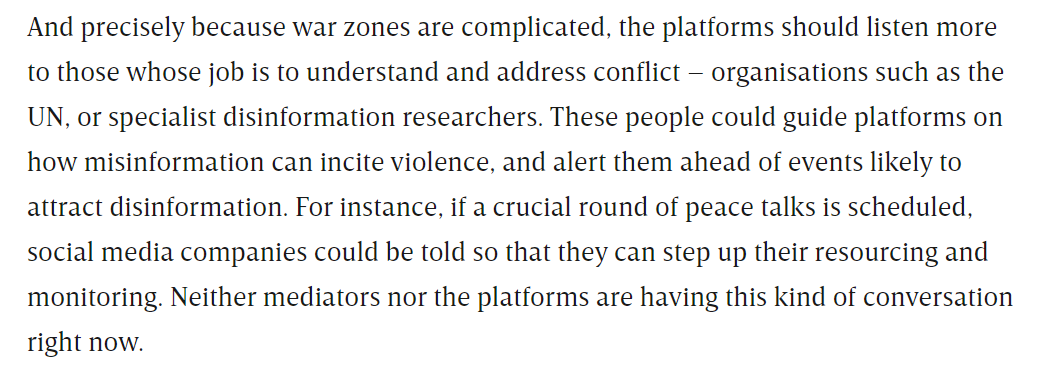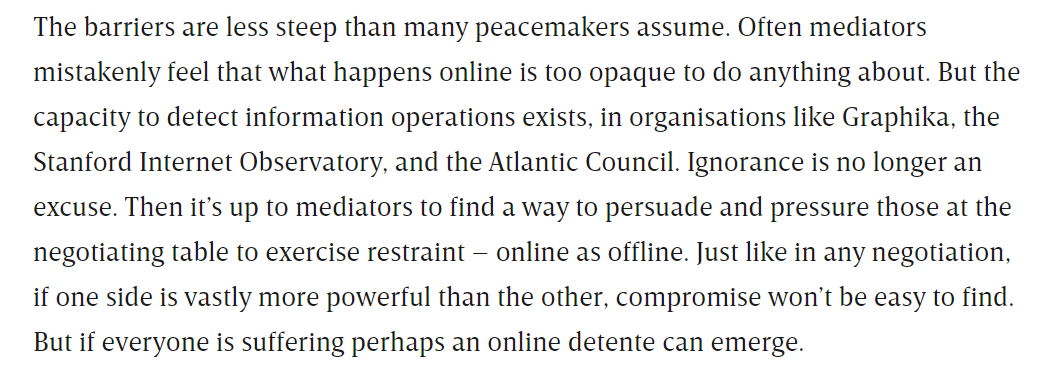Why should you care about how social media is used in war zones? And how can we stop it making conflict worse?
A thread on the case that @maude_morrison0 and I make in @WiredUK (1/7) https://twitter.com/WiredUK/status/1384417700605222912">https://twitter.com/WiredUK/s...
A thread on the case that @maude_morrison0 and I make in @WiredUK (1/7) https://twitter.com/WiredUK/status/1384417700605222912">https://twitter.com/WiredUK/s...
Policy debate on regulating big tech and #disinfo is skewed towards the problems of the Western world.
But social media does the most real-world harm in places already wracked by conflict – especially by undermining peace talks, as we’ve seen in #Libya and elsewhere (2/7)
But social media does the most real-world harm in places already wracked by conflict – especially by undermining peace talks, as we’ve seen in #Libya and elsewhere (2/7)
Social media platforms still pay insufficient attention to “the rest of the world”, as many others have documented (3/7) https://twitter.com/juliacarriew/status/1381520258071023617?s=20">https://twitter.com/juliacarr...
Understanding what’s happening in conflict zones is hard. Peace processes are unpredictable. All the more reason for social media platforms and conflict experts from the likes of @UN and @CrisisGroup to talk to each other to identify which peace talks are most at risk (4/7)
Conflict mediators should step up too. We are used to talking to warring parties about their behaviour offline – but not about what they do online. This is hard but not impossible. We need to make ceasefires and political agreements fit for the digital age. (5/7)
What happens on social media & who’s responsible isn’t indecipherable, as #disinfo researchers @Graphika_NYC @stanfordio @DFRLab & others have shown. But defining who has the technical skill *and* political legitimacy to monitor digital peace agreements is a challenge (6/7)

 Read on Twitter
Read on Twitter






